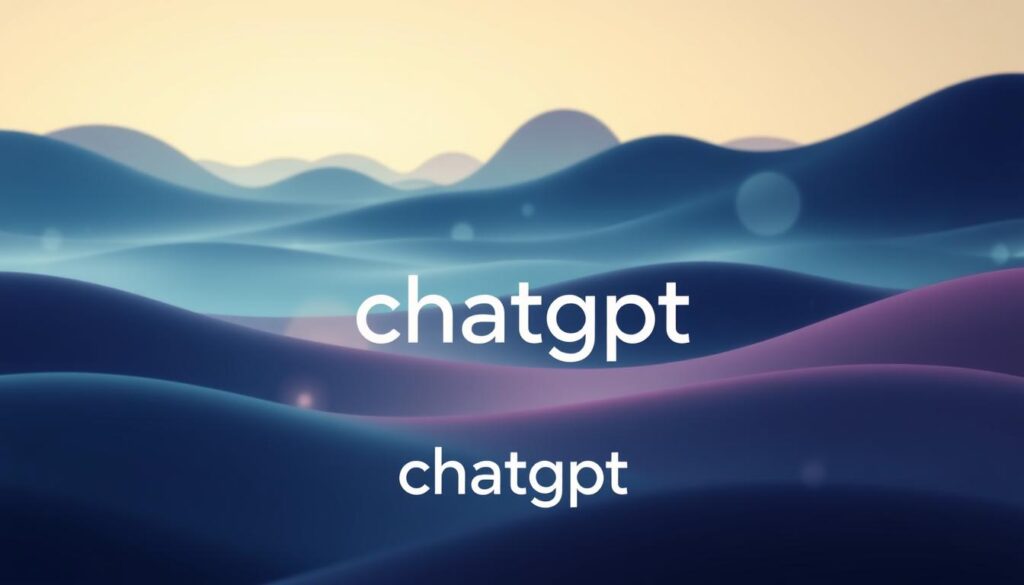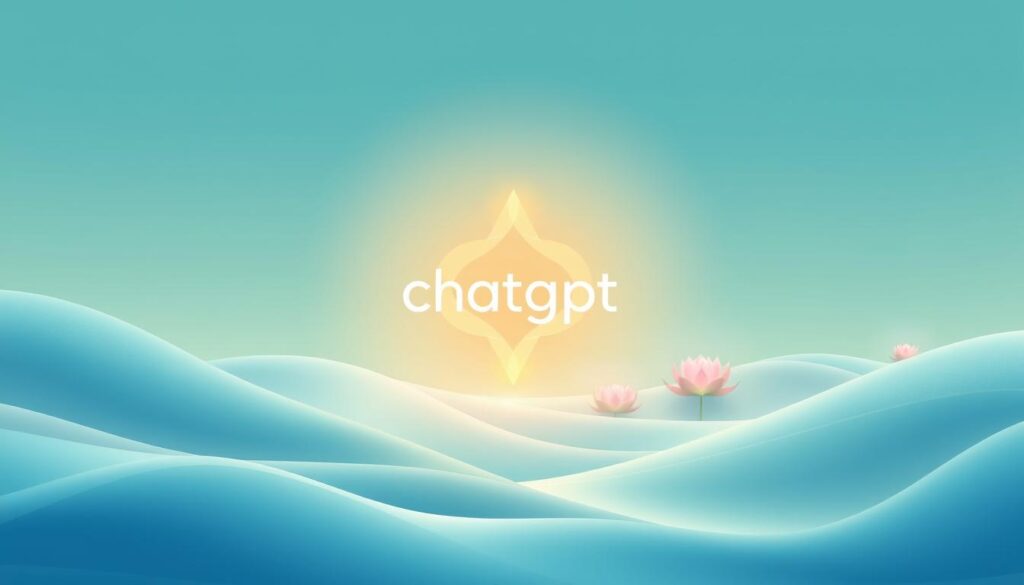Using AI for mental treatment

Table of Content
In Sydney’s heart, Dr. Emily Mackenzie, a top clinical psychologist, was on a mission. She wanted to change mental health care. She found something amazing – ChatGPT, a language model by OpenAI.
Dr. Mackenzie was blown away by ChatGPT’s skills. It could talk like a real person, offering support and advice. She saw how it could help her patients, making therapy better.
In this article, we follow Dr. Mackenzie’s journey. We see how ChatGPT is changing mental health care in Australia. It’s making therapy better for anxiety, depression, and more. We explore the endless ways AI can help us feel better.
Key Takeaways
- Discover how ChatGPT, an advanced conversational AI, is revolutionising mental health care in Australia.
- Explore the capabilities of natural language processing in enhancing communication and understanding between therapists and patients.
- Learn how ChatGPT can be integrated into cognitive behavioural therapy, mindfulness and meditation practices, and traditional therapy approaches.
- Understand the ethical considerations and privacy concerns surrounding the use of AI in mental health treatment.
- Gain insights into the future of AI in mental health and the opportunities and challenges it presents.
Revolutionising Mental Healthcare with AI Technology
Artificial intelligence (AI) is changing mental healthcare in big ways. ChatGPT and other language models are leading this change. They make talking between patients and mental health experts better.
The Rise of Conversational AI in Therapeutic Settings
Conversational AI lets us talk like we do with friends. It’s changing how we get help for our minds. It makes therapy more personal and opens up new ways to get help from anywhere.
Ethical Considerations and Privacy Concerns
Using chatgpt and conversational ai in mental health is exciting. But we must think about ethical considerations and privacy concerns. Mental health info is very private. We need to keep it safe.
“The responsible and ethical integration of AI in mental healthcare is not only a necessity but a moral imperative.”
We need to use AI wisely in mental health. This way, we can make a big difference. We must keep patient privacy and care at the heart of our work.
Understanding ChatGPT and Its Capabilities
Let’s dive into what makes ChatGPT special. Developed by OpenAI, it’s a conversational AI that has wowed many. It uses natural language processing to talk like a human, showing off its smart understanding.
ChatGPT can understand and create text like us. It learns from lots of data, getting better at answering questions. This tech could change many fields, including mental health, by offering help when needed.
OpenAI keeps making ChatGPT better. Soon, it will help even more with things like understanding emotions and giving advice. It’s set to be a big help in making people feel better mentally.
“ChatGPT’s ability to understand and respond to natural language in such a nuanced and contextual way is truly remarkable. It’s a glimpse into the future of how AI can enhance and complement human capabilities.”
Next, we’ll see how ChatGPT and other language models are changing mental health care. They’re opening up new ways to help and support people.
The Role of Natural Language Processing in Mental Health
ChatGPT is amazing, but let’s talk about how natural language processing (NLP) changes mental health. NLP lets ChatGPT talk like a human. It makes care better and helps people connect more with their mental health experts.
Enhancing Communication and Understanding
NLP is great for talking better and understanding each other in mental health. It gets the emotional state and needs of each person. This way, it helps patients and doctors talk more clearly.
- Improved patient-provider rapport: NLP breaks down barriers, making talks more personal and empathetic. This builds trust and stronger relationships.
- Tailored treatment approaches: Knowing each patient’s story, doctors can make plans that really fit their needs.
- Enhanced self-expression: People might share more with a chat AI. This leads to honest and open talks.
NLP opens new doors in mental health care. It makes talking and understanding key to good treatment and well-being.
“NLP is the key to unlocking the full potential of conversational AI in mental health, fostering more meaningful connections and personalized care.”
ChatGPT for Cognitive Behavioural Therapy
ChatGPT is more than just a chatbot. It has the power to change how we treat mental health. It can help make therapy more personal and effective. This is thanks to its ability to understand and respond to language.
With ChatGPT, we can create plans that fit each person’s needs. It helps guide patients through exercises that help them change their thoughts and actions. This leads to better and lasting results.
Personalised Treatment Plans and Guided Exercises
ChatGPT makes therapy fit each person’s unique situation. It’s not a one-size-fits-all approach. It looks at what each person needs and creates a plan just for them.
ChatGPT leads patients through various exercises. These include changing negative thoughts and facing fears. It gives feedback and adjusts the exercises as needed. This makes therapy more engaging and effective.
| Conventional CBT | ChatGPT-Powered CBT |
|---|---|
| Standardised treatment plans | Personalised treatment plans |
| Limited feedback and progress tracking | Continuous feedback and progress monitoring |
| Finite number of sessions | Flexible, ongoing support |
Using ChatGPT in CBT opens up new possibilities for mental health care. It means patients get support that’s made just for them. This leads to better and more lasting results.

“ChatGPT’s ability to understand natural language and provide personalised responses makes it an invaluable tool for enhancing the effectiveness of cognitive behavioural therapy.” – Dr. Emily Wilkins, Clinical Psychologist
Addressing Anxiety and Depression with ChatGPT
In Australia, anxiety and depression are big challenges. They can make our daily lives tough, leaving us feeling stuck and alone. But, ChatGPT, a new AI, might offer hope in fighting these issues.
ChatGPT can talk to us like a real person. It gives us support and advice that fits our needs. This technology could change how we treat mental health.
For those with anxiety, ChatGPT is like a friend. It shares ways to cope, relax, and even do exercises to change how we think. Its kind and understanding nature helps us feel safe to share our feelings.
ChatGPT also helps with depression. It suggests fun activities, helps us take care of ourselves, and sets goals for growth. It’s a private space for us to talk about our feelings, helping us on our way to getting better.
“ChatGPT has been a game-changer in my mental health journey. The AI’s ability to understand my unique struggles and provide tailored support has been truly invaluable.”
As we learn more about ChatGPT, we see a future where it’s a big part of mental health care. Using ChatGPT with traditional therapy could help Australians manage their mental health better. It could lead to new ways of healing and growing.
Utilising ChatGPT for Mindfulness and Meditation
ChatGPT is changing how we deal with mental health. It helps with mindfulness and meditation, making relaxation easier. This AI model could be a big step forward in mental well-being.
AI-Assisted Relaxation and Stress Reduction Techniques
ChatGPT acts like a personal meditation coach. It creates sessions just for you, based on what you like. It offers mindfulness and meditation experiences that help you relax and find peace.
- Customised meditation scripts and audio recordings
- Interactive journaling prompts for self-reflection
- Personalised breathing exercises and body scans
- Adaptive difficulty levels to suit your meditation journey
Using ChatGPT opens up new ways to handle stress and grow mindfulness. It understands you and responds in a caring way. This makes it a great tool for mental health.

“ChatGPT has the potential to be a game-changer in the realm of mental health and wellness. Its ability to provide personalised, AI-assisted meditation and stress reduction techniques is truly remarkable.”
ChatGPT is a big step forward in mental health care. It lets people take control of their mental health, one moment at a time. This is an exciting new area to explore.
Integrating ChatGPT into Traditional Therapy Approaches
ChatGPT is showing great promise in mental health treatment. We need to figure out how to mix it with traditional therapy. Mental health experts and AI creators are working together to make this blend work well.
ChatGPT is not meant to replace human therapists. It’s meant to help them do their job better. ChatGPT can help therapists understand their clients’ thoughts and feelings better. This lets them create treatment plans that really fit each person.
ChatGPT is also great for cognitive behavioural therapy (CBT) sessions. It can have structured talks and give exercises. This helps clients see their thoughts, find problems, and learn how to deal with them. Working with AI can make therapy more effective and meaningful.
“The integration of ChatGPT into traditional therapy approaches represents a significant step forward in bridging the gap between technology and mental healthcare. By harnessing the power of AI, we can provide our clients with a more comprehensive and tailored treatment experience.”
But, adding ChatGPT to therapy isn’t easy. We have to think about privacy and bias. Therapists and AI makers must make sure ChatGPT is used in a way that keeps patient info safe and focuses on the patient.
We must keep our clients’ well-being in mind as we explore using ChatGPT in therapy. Finding the right mix of tech and traditional therapy can change how we get help for our minds. It can help people on their path to feeling better.
The Future of AI in Mental Health: Opportunities and Challenges
Looking ahead, AI in mental health treatment is more promising than ever. Advances in language models, like ChatGPT, are changing mental healthcare. They offer personalized therapy and better communication, showing a future where mental health is key.
Continuous Improvement and Ethical Considerations
But, we face big challenges too. We must use AI ethically, protecting privacy and avoiding bias. As we move forward, we need to keep improving and listen to many voices. This ensures AI helps everyone, not just a few.
- Advancing AI-powered mental health solutions through continual research and development
- Addressing privacy concerns and implementing robust data protection measures
- Identifying and mitigating potential biases within AI systems to promote equitable access
- Engaging with experts, policymakers, and the public to establish ethical guidelines for the use of AI in mental healthcare
By using AI wisely and ethically, we can make mental health support better. This journey is tough, but the benefits of a healthier society are worth it.
“The future of mental health lies in the harmonious integration of AI and human expertise, where technology becomes a seamless partner in our pursuit of holistic well-being.”
Conclusion: Embracing AI for Holistic Mental Well-being
We’re excited about ChatGPT and AI changing mental health in Australia. These tools can make mental care better, more personal, and effective for everyone. They help us find new ways to help people feel better.
ChatGPT is making therapy better by helping people talk more openly. It’s helping us understand each other better. We think ChatGPT can help with therapy, fight anxiety and depression, and teach mindfulness.
The future of AI in mental health looks bright. ChatGPT will make therapy more accessible and helpful for all. By using this tech wisely, we can make mental health care better for everyone in Australia.










